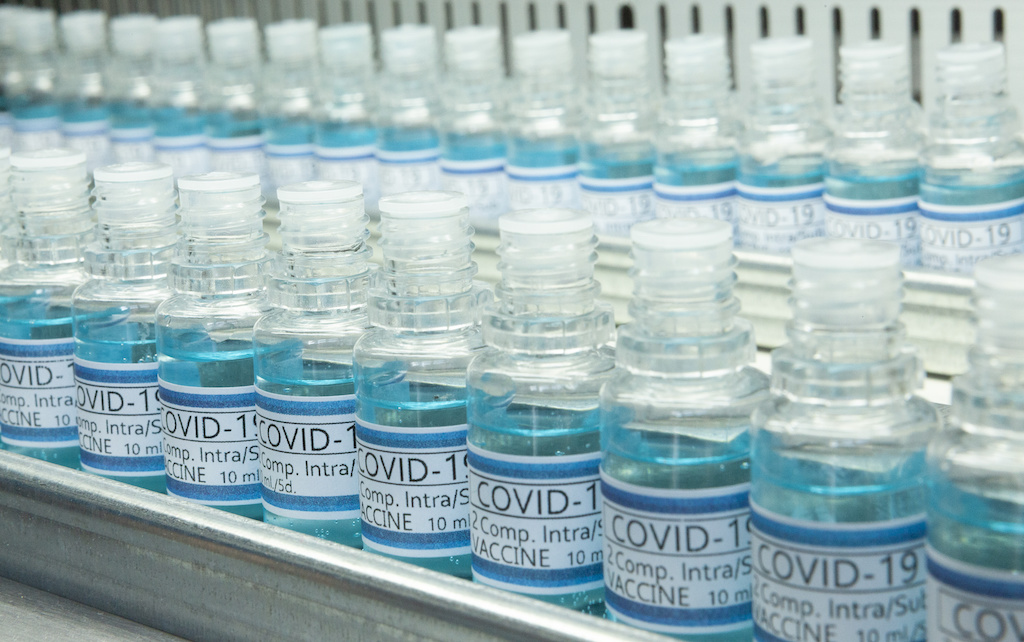On Friday, the news that we have been waiting for finally arrived. The U.S. Food & Drug Administration (FDA) announced that it had authorized Pfizer’s COVID-19 vaccine for emergency use. Headlines indicated that the first shipment would be distributed around the United States through FedEx and UPS.
The two distribution companies are fierce competitors, but are working side by side to ship the vaccine from Pfizer’s plant in Kalamazoo, Michigan, to their distribution hubs, where it will be dispersed to 636 locations across the U.S. Shipping was to begin on Sunday morning.
UPS’s Wes Wheeler stated, “We’ve been planning for months with daily calls, drilling down to really quite minute details.” Thanks to Bluetooth- and radio-enabled tracking tags, each shipment of boxes will be tracked by a team of 5-10 people staffing a 24/7 command center in UPS’s Worldport air cargo hub in Louisville, Kentucky. FedEx established a similar tracking system.
As the articles rolled across my computer screen, I recalled that Gen. Gustave Perna, the chief operating officer of Operation Warp Speed, is a four-star Army general who served as the commanding general of the U.S. Army’s Materiel Command. Gen. Perna earned a master’s degree in logistics management from the Florida Institute of Technology in 1992. Based on his experience leading the command to supply the U.S. Army at locations in the U.S. and around the world, Gen. Perna is highly qualified to lead this effort.
Pfizer, UPS, and FedEx are the top of the distribution plan. As I continued to read articles, I noted that all 50 states and six major cities submitted a list of locations, mostly hospitals, where the vaccine will be shipped initially.
In Florida, the first recipients will be hospitals in Miami, Hollywood, Orlando, Tampa, and Jacksonville. In Vermont, the University of Vermont Medical Center and a state warehouse will receive the vaccine and supplies. Medical supply giant McKesson Corporation is sending kits of syringes, alcohol pads, face shields, and other supplies to the same sites specified by the states.
The enormity of the logistics is fascinating. In a Chicago Tribune article, I learned that the national pharmacy chain, Walgreens, plans to inoculate nursing home residents and workers at more than 30,000 long-term care facilities nationwide.
In order to do that, they are hiring 25,000 people, including 9,000 pharmacists and other healthcare workers, as well as partnering with pharmacy service provider PharMerica. (Note: Before beginning my years of service with American Public University System [APUS], I led NeighborCare Pharmacies, a long-term care pharmacy provider, and competed with PharMerica among other long-term care pharmacies.)
CVS Health (another national pharmacy chain) and Walmart are also partnering to administer doses of the vaccine to the residents, workers, nursing homes and assisted living centers. CVS’s CEO stated that they are preparing 10,000 healthcare professionals to give the shots, while Walmart is preparing more than 5,000 in-store and Sam’s Club pharmacies to receive the vaccine.
It’s a noteworthy fact that 90% of the American population lives within 10 miles of a Walmart store. Walmart states that it will follow state regulations regarding distribution of the vaccine and inform the public when it will be available and the process for determining the priority of the distribution.
Further complicating the distribution process is the fact that the Pfizer COVID-19 vaccine is a two-shot vaccine, requiring a second shot three weeks after the first shot. That requires tracking of each person administered the first shot, stocking of the vaccine for the second shot, and follow-up with administration of the second shot. Allocating and tracking the vaccine will be done by each state’s health department as long as the vaccine doses are in short supply.
Transportation and Logistics may not be considered one of the “sexier” degree programs at colleges and universities, but the program prepares many of its graduates for careers in a vital field. I remember a discussion I had years ago with Dr. Oliver Hedgepeth, a professor and program director at APUS and former chair of the logistics department at the University of Alaska Anchorage, when he informed me of the number of people employed in logistics for all of the branches of DoD.
Since that discussion, Dr. Hedgepeth and his colleagues at APUS added a program in Reverse Logistics and another in Supply Chain Management to complement our Transportation and Logistics program. While the programs are related, they also provide a different focus for students who are already employed in the logistics field.
I asked Dr. Hedgepeth for his thoughts about the impact of the pandemic on the supply and distribution chain. He responded:
“Logistics wasn’t so great before COVID-19. Pandemic supply chains and logistics services will be redefined during 2021. Past logistics experience is not the smooth model to continue to follow. The team approach between and among all members of this COVID-19 vaccine movement, storage, data tracking, transportation, delivery, and error history will be a new normal for this leading-edge logistics about to emerge in 2021.
“It is reasonable to work to see how many years it may take to see this logistics system settle down. There are biases in the logistics process and the people in charge in each state in the U.S. Expect to see a more robust supply chain and logistics system based on artificial intelligence (AI) helping sort through the thousands of online and live data feeds about problems and positive results for human subjects and logistics systems. We will need a new risk index for the millions of success and failure points along the vaccine timeline. The 2021 logistics system for this vaccine will become a holistic approach.”
It’s great to hear about the teamwork approach that has led to the current pandemic distribution process. We have miles to go before we vaccinate enough people in the U.S. and globally in order to obtain herd immunity.
In addition to thanking the scientists and drug companies who have developed and manufactured these vaccines, we need to thank the logistics teams that are part of the network distributing the vaccines and supplies to the medical personnel who are administering it. I’m sure there will be many more stories along this COVID-19 vaccine journey, more than a few written by Dr. Hedgepeth and his colleagues in the logistics and supply chain arena and maybe a couple written by me.











